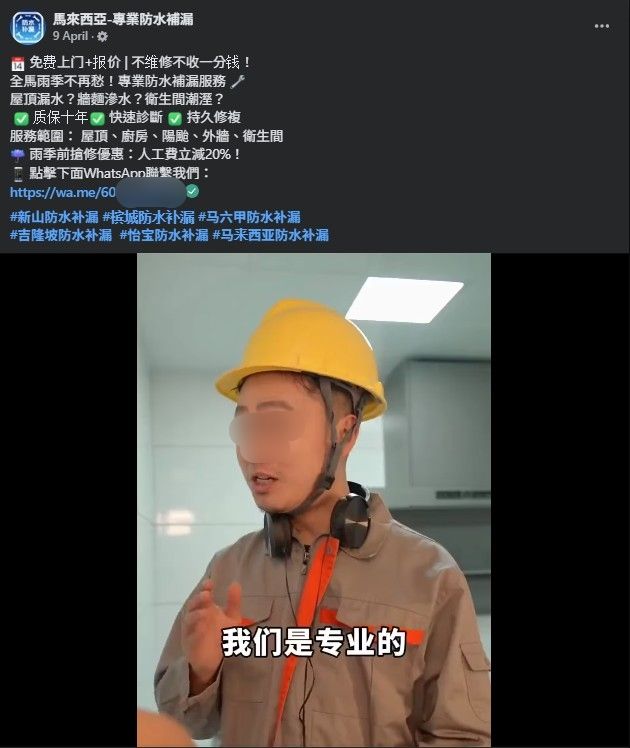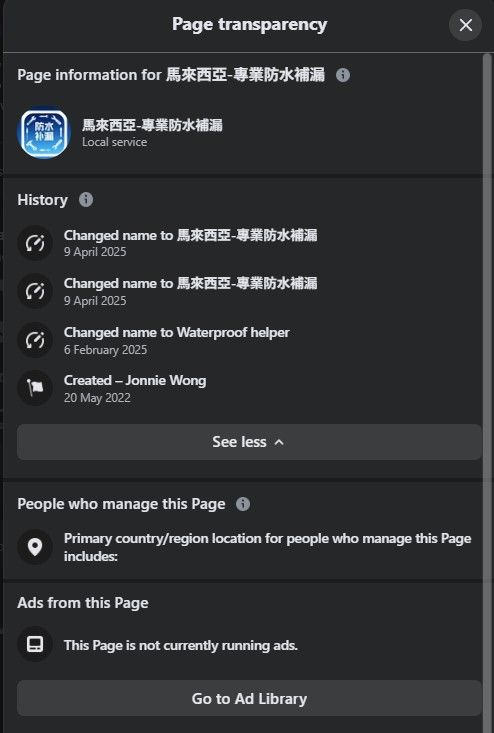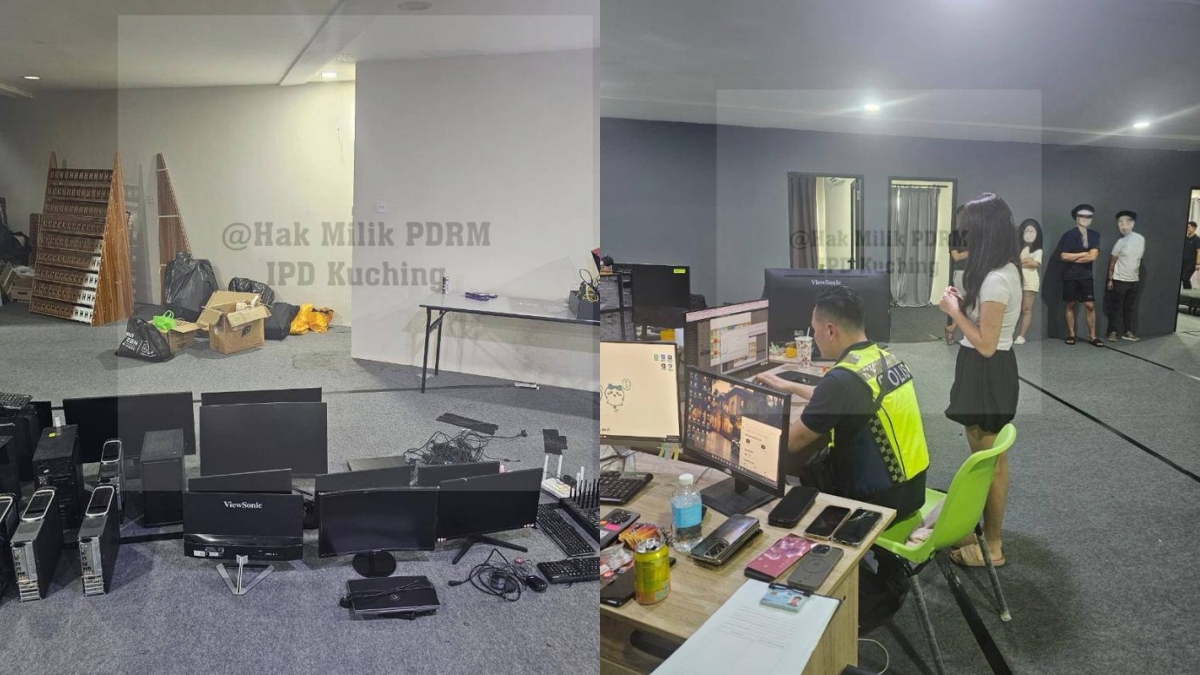Johor chef working in Singapore duped by RM6,900 waterproofing scam advertised on Facebook
A 47-year-old Johor chef working in Singapore lost RM6,900 (S$2,080) to fraudsters offering “no-wall-breaking” waterproofing repairs. The Facebook-advertised service proved ineffective, with unlicensed contractors vanishing after payment.

- Johor chef Jia De Bao lost RM6,900 to a fraudulent waterproofing service advertised on Facebook.
- The unlicensed crew, allegedly on tourist visas, performed ineffective repairs before disappearing.
- Authorities treated the case as a civil dispute, prompting calls for stronger checks on contractors.
A 47-year-old Johor chef working in Singapore has revealed how he lost RM6,900 (about S$2,080) to a fraudulent waterproofing and leak-repair service advertised on Facebook.
The victim, Jia De Bao, responded to an advertisement promising “no-wall-breaking” repairs, but the work failed to resolve his home’s leak. The crew subsequently disappeared after receiving payment.
Social media pitch with “guarantees”
According to China Press, Jia encountered a Facebook page titled Malaysia – Professional Waterproofing and Leak Repair, which had drawn more than 66,000 views and 2,000 likes.

The page promised a “ten-year quality guarantee,” “durable repair,” and “transparent pricing,” claiming to operate nationwide with qualified technicians. It also promoted a “pre-monsoon offer” and “satisfaction-before-payment” policies.

Yet closer scrutiny revealed no website, no physical office, and only WhatsApp contact details. Transparency logs showed the page had been created by “Jonnie Wong” in 2022, renamed in February 2025, and rebranded in April 2025.

Suspect contractors on tourist visas
Jia arranged an inspection at his Taman Nusa Jaya Mas home. Two men arrived in a Malaysian-registered car, quoted RM6,900 based on adhesive volume, and promised a six-year warranty. They claimed experience in China and said they were working in Malaysia on tourist visas.
The men conducted a brief adhesive injection procedure before demanding immediate payment into a Singaporean bank account.
Faulty work, evasive responses
The repair proved ineffective, with water stains persisting days later. Initial excuses from the men soon gave way to silence, as they stopped answering Jia’s calls.
When he contacted them using a new number, they responded but failed to resolve the matter. A delayed handwritten receipt in Chinese yuan, without business details, raised further doubts.
Authorities alerted but challenges remain
Jia reported the case to police, the Domestic Trade and Cost of Living Ministry, and consumer arbitration bodies. Police classified the matter as a civil dispute, while arbitration was rejected due to the absence of a valid business registration—deepening suspicions of fraud.
Jia highlighted similar scams operating in China, Taiwan, and Singapore, suggesting the scheme had now spread to Malaysia.
Calls for stronger oversight
He urged authorities to strengthen oversight of unlicensed contractors, particularly those exploiting visa-free entry to perform unauthorised work. He also encouraged consumers to verify licences, registrations, and immigration status before engaging contractors from social media platforms.
The warning comes after Malaysia and China agreed in May 2025 to extend their mutual visa-free travel arrangement, allowing stays of up to 90 days within any 180-day period, aimed at boosting tourism and exchanges.







